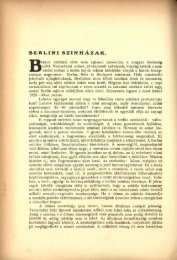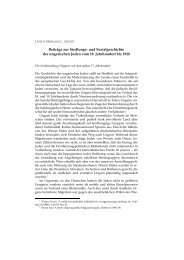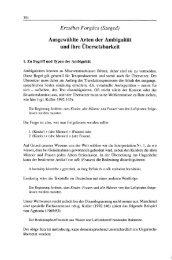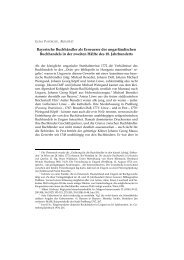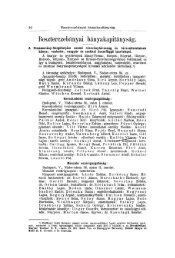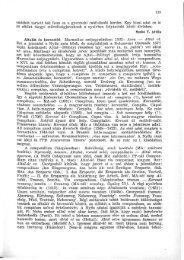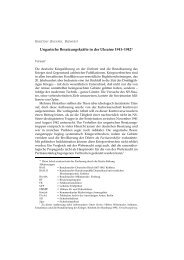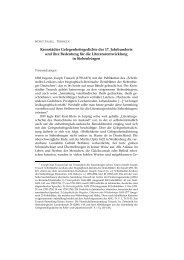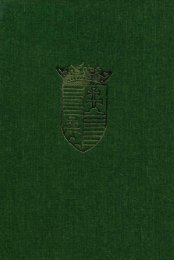hungarian studies - EPA - Országos Széchényi Könyvtár
hungarian studies - EPA - Országos Széchényi Könyvtár
hungarian studies - EPA - Országos Széchényi Könyvtár
Create successful ePaper yourself
Turn your PDF publications into a flip-book with our unique Google optimized e-Paper software.
SOME QUESTIONS ON HUNGARIAN-SOVIET RELATIONS 33<br />
urban areas. Mikoyan wanted to talk about the economy. He worried about the<br />
growing foreign trade deficit and claimed that the production of soap, textiles, and<br />
shoes was below the 1952 level. According to Mikoyan, Hungary's goals for the<br />
development of heavy industry were still set too high. An 86% increase, envisioned<br />
in the production of iron in a country that possessed no iron ore or coke,<br />
seemed unrealistic. 167 Mikolyan's views were seconded by Malenkov, who also<br />
deplored the renewed attempts to accelerate industrialization. l68 Khrushchev then<br />
proceeded to pronounce a criticism of Nagy and Rákosi that fell equally on the<br />
shoulders of both men. The latter was guilty of sticking to his old policies and not<br />
recognizing his mistakes. These errors were harmful to party unity. Then CPSU's<br />
first secretary also made a significant remark, which strengthened Nagy's hand.<br />
Khrushchev claimed that it was incorrect, as Rákosi had attempted, to explain<br />
away the earlier Soviet criticisms by arguing that they constituted a "Beria provocation".<br />
"He [Rákosi] thinks," said Khrushchev, "that after we shot Beria, we also<br />
shot [Beria's] criticisms. This is not so". Rákosi was responsible for the sentencing<br />
of many innocent people. 169 He then scolded Prime Minister Imre Nagy for<br />
dwelling too much on the mistakes of the past and not talking enough about the<br />
"results" ofthat same past. 170 This and the statement that "the mistakes will have<br />
to be corrected in such a way as not to destroy comrade Rákosi's authority" were<br />
clear signals that Khrushchev was no longer firmly supporting the policy of 1953.<br />
At the same time he was not ready to return to traditional Stalinism either. In a<br />
particularly noteworthy comment Khrushchev touched on the collectivization issue<br />
by stating that he did not favor its acceleration, but did not wish to see it held<br />
back either. Khrushchev referred to his own experience in the Ukraine as a positive<br />
example. There the collectivization had been pursued as part of a "very tense<br />
class struggle, but was still concluded three years earlier than in neighboring<br />
Byelorussia". 171 Moscow's critiques crystallized around the themes of party unity<br />
and economic policy; and it was not hard to see that Khrushchev and the Hungarian<br />
"old guard" did not see eye-to-eye on the latter issue. Yet, the two problems<br />
were closely interrelated, because economy was the stumbling bloc that divided<br />
the Hungarian leadership the most. Of course the economy was important for its<br />
own sake as well. The Soviets reinstalled Ernő Gerő, who had been relieved of his<br />
economic responsibilities in 1953, and asked him once again to devote fully his<br />
energies to economic issues.<br />
This reinstatement allowed Gerő to launch an offensive designed to revive his<br />
old economic policies. He and Rákosi tried to convince Yuri Andropov, the Soviet<br />
ambassador to Hungary, that the new government was responsible for the economic<br />
problems because of its non-repressive peasant policies and devotion to<br />
raising the standard of living. The rise of incomes championed by the new government<br />
simply exceeded the levels that the country's economy could support.<br />
Gerő recommended that the problems could best be alleviated by reducing the


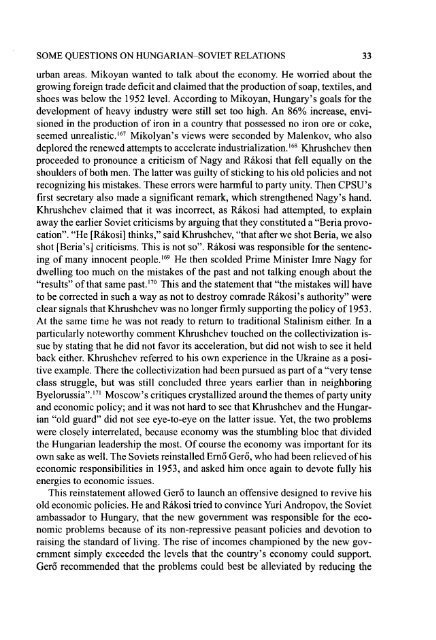
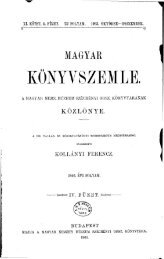
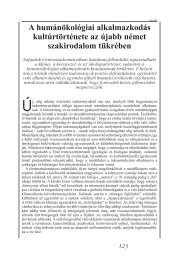
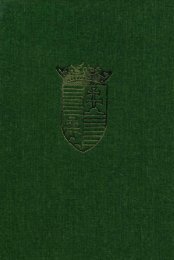
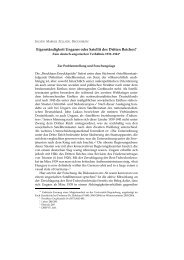
![Letöltés egy fájlban [36.8 MB - PDF] - EPA](https://img.yumpu.com/23369116/1/172x260/letoltes-egy-fajlban-368-mb-pdf-epa.jpg?quality=85)
